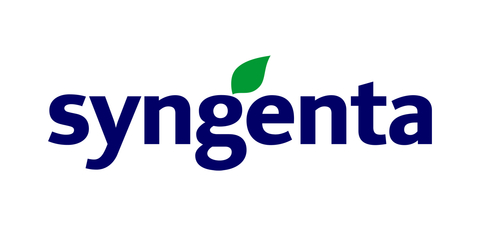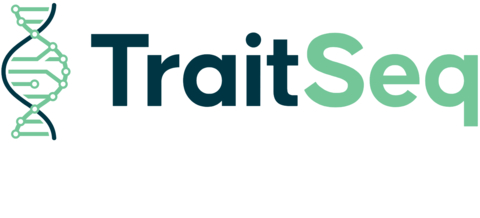Artificial intelligence is speeding up the development of the next generation of biostimulants
Artificial intelligence is speeding up the development of the next generation of biostimulants
- Syngenta Crop Protection and TraitSeq announce a pioneering collaboration which could help farmers transition to more sustainable practices.
BASEL, Switzerland & NORWICH, England--(BUSINESS WIRE)--Syngenta and the pioneering artificial intelligence (AI) company TraitSeq are combining forces to use the full power of AI for the development of innovative, high-performance biostimulants.
Syngenta, a world leader in developing the next generation of biologicals products for agricultural use, will use its extensive knowledge of crop biology to complement TraitSeq’s proprietary AI methods to identify highly specific indicators of a plant’s cellular state called biomarkers. When activated, these biomarkers can indicate how well a plant is responding to efforts to boost its health or to block the effects of external, abiotic stressors.
Biostimulants are products applied to plants, seeds or the root environment that enhance natural plant processes, leading to an improved nutrient use efficiency, increased tolerance to abiotic stress or better crop quality. Biostimulants are a vital and growing component of sustainable agriculture, yet their performance can vary depending on environmental factors such as temperature and local climate.
Syngenta has extensive data across different branches of science – such as genomics, proteomics, metabolomics, and phenomics. Using TraitSeq’s sophisticated proprietary platform, scientists from both teams hope to leverage AI to analyze complex biological big data, to uncover the intricate molecular interactions that impact a crop’s ability to utilize available nutrients in the soil. Once specific biomarkers can be identified, scientists hope to be able to quickly and accurately assess the efficacy of a new biostimulant in enhancing plant health.
The development of such biostimulants also fits in Syngenta’s efforts to support farmers transition to regenerative practices and its commitment to sustainability. Syngenta’s recently launched Portfolio Sustainability Framework (PSF) rates Syngenta’s products for sustainability and stakeholder alignments into 3 tiers. New products are also included with the aim to shift the portfolio towards the top tier.
Camilla Corsi, Head of Crop Protection Research at Syngenta, said: “At Syngenta, we are accelerating the pace at which we innovate, to deliver solutions farmers urgently need. Technologies such as TraitSeq’s AI-driven platform enable us to revolutionize our research, attain important data-driven insights, so that we can develop the next-generation of sustainable solutions faster – while further strengthening our pipeline of innovative agricultural technologies.”
Dr. Joshua Colmer, CEO of TraitSeq, said, “This partnership highlights how TraitSeq’s versatile platform can transform agricultural input development by uncovering predictive biomarkers that directly link molecular insights to biostimulant performance. By equipping Syngenta’s innovation pipeline with these capabilities, we aim to optimise and accelerate the development of new biological solutions, which will support farmers in adopting more sustainable agricultural practices.”
Biostimulants offer an important solution to farmers seeking to improve the sustainability of their farming operations while addressing challenges arising from an increasingly constrained toolbox of available agricultural technologies and evolving consumer demands.
About Syngenta
Syngenta is a global leader in agricultural innovation with a presence in more than 100 countries. Syngenta is focused on developing technologies and farming practices that empower farmers, so they can make the transformation required to feed the world’s population while preserving our planet. Its bold scientific discoveries deliver better benefits for farmers and society on a bigger scale than ever before. Guided by its Sustainability Priorities, Syngenta is developing new technologies and solutions that support farmers to grow healthier plants in healthier soil with a higher yield. Syngenta Crop Protection is headquartered in Basel, Switzerland; Syngenta Seeds is headquartered in the United States. Read our stories and follow us on LinkedIn, Instagram & X.
About TraitSeq Ltd
TraitSeq Ltd is an agri-biotechnology company specialising in applying proprietary machine learning approaches to omics data analysis for agriculture. A spin-out from the Earlham Institute, TraitSeq’s platform combines omics data with other data types to predict complex phenotypic traits. This provides agritech companies with actionable insights to accelerate and optimise chemical and biological crop input development, plant gene editing, and complex trait development in agricultural crops and animals. Find out more at www.traitseq.com and follow us on LinkedIn.
Cautionary Statement Regarding Forward-Looking Statements
This document may contain forward-looking statements, which can be identified by terminology such as ‘expect’, ‘would’, ‘will’, ‘potential’, ‘plans’, ‘prospects’, ‘estimated’, ‘aiming’, ‘on track’ and similar expressions. Such statements may be subject to risks and uncertainties that could cause the actual results to differ materially from these statements. For Syngenta, such risks and uncertainties include risks relating to legal proceedings, regulatory approvals, new product development, increasing competition, customer credit risk, general economic and market conditions, compliance and remediation, intellectual property rights, implementation of organizational changes, impairment of intangible assets, consumer perceptions of genetically modified crops and organisms or crop protection chemicals, climatic variations, fluctuations in exchange rates and/or commodity prices, single source supply arrangements, political uncertainty, natural disasters, and breaches of data security or other disruptions of information technology. Syngenta assumes no obligation to update forward-looking statements to reflect actual results, changed assumptions or other factors.
©2025 Syngenta. Rosentalstrasse 67, 4058 Basel, Switzerland.
Contacts
Media Contacts
Syngenta Media Relations
media@syngentagroup.com
TraitSeq
JulianLittlecommunications@gmail.com
Web Resources


